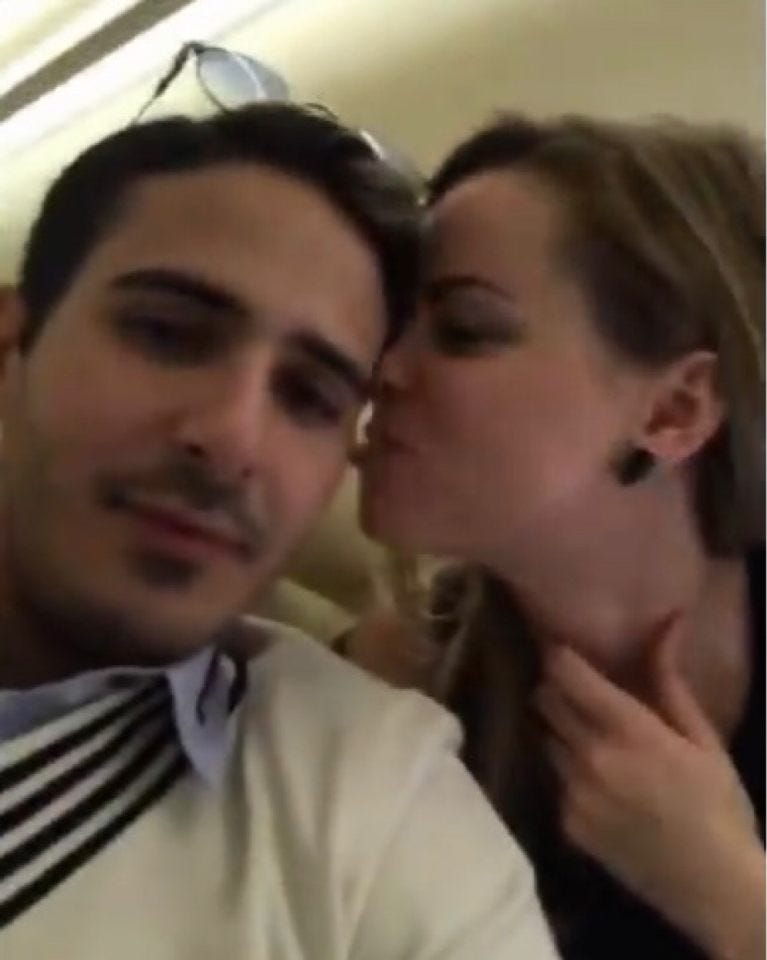SWINDLERS' LIST
Love Addicts Make Perfect Victims for Romance Scammers
I’ve said this before, but I am grateful every day that I didn’t come of age in the Digital Age. I shudder to think how often Tinder would have sent me to the Clap Clinic, which is what we affectionately called the Student Health Center at UC Santa Barbara. The worst kinds of revenge porn I ever suffered was some guy scrawling my phone number on a bathroom wall, and another naming a character in a dirty book after me. And, like any decent hopeless romantic (the accepted term for love addict back then), I would have been a perfect target for romance scammers.
Reports of online romance scams have tripled since 2015, according to the Federal Trade Commission. They received 32,000 consumer complaints about romance scammers in 2020, amounting to losses in excess of $304 million — and since one assumes that the majority of people who lose money to romance scammers are too embarrassed or ashamed to report the loss, we can assume it’s even higher. (The FBI estimates it at $600 million.)
Statistically, you’re most likely to be scammed if you’re over 55, female, and live in California. I am all of those things. Luckily, I am also a cynical curmudgeon and haven’t given a man money since 1988. Well, except my son; I give him money all the time. The average loss is $2,500 per person, ranging from the cost of a phone card someone that said they needed to whisper sweet nothings in your ear, to the $250,000 a cute, sad blonde in Norway gave to the infamous Tinder Swindler.
Now, I don’t want to blame the victim, here. Simon Leviev (not his given name, of course) is an accomplished con man, and if he hadn’t been talking smitten women into buying him plane tickets he would have been talking retirees into buying penny stocks. He knew how to spot a sucker. You’d think he read the Twelve Characteristics of Sex and Love Addiction and used it as a checklist.
Cecilie Fjellhoy is one of three women out of the dozens Leviev swindled who came forward in the recent Netflix documentary The Tinder Swindler. She had been on Tinder for seven years when she swiped right on Simon. He was her 1,024th match on the app, because hope springs eternal when you are hopeless romantic. (Characteristic #3: Fearing emotional and/or sexual deprivation, we compulsively pursue and involve ourselves in one relationship after another…)
He treated her to champagne, sushi and caviar at their first meeting. “Butterflies!” she says. “It was the perfect first kiss.“ That night, he whisked her off in a private jet (paid for with another woman’s money) and they slept together in a fancy hotel. “Things had gone very quickly with us,” she says, “but that’s how I am when I feel an emotional connection.” (Characteristic #1: Having few healthy boundaries, we become sexually involved with and/or emotionally attached to people without knowing them.)
She didn’t know that the constant love-bombing via voicemail and WhatsApp was being copied and pasted to other women at the same time, but a “normie” might have found it offputtingly over the top in the first place. Too much is never enough for an addict. Cecilie couldn’t have known how carefully he staged the “imminent danger” he was in, or how often he had pulled the same gag, but it’s a classic love addict move to mortgage her home to bail him out.
“He is the kind of person you want to save,” she says. “The first memories I have about love is Disney. I memorized Beauty and the Beast. She meets this person and she saves him, and he saves her… it just sticks with you, the feeling of a prince coming to save you.” (Characteristic #4: We confuse love with neediness, physical and sexual attraction, pity and/or the need to rescue or be rescued.)
Even though the fallout from this so-called relationship (she thought she was in one while he knew he wasn’t, and that can happen without any financial incentive involved) sent Cecilie to a psychiatric hospital, she still doesn’t appear to identify with love addiction or see it as a problem. “The most happiest times I’ve had is when I’ve been in love,” she says. “No matter how many heartbreaks you’ve had, you still go after it. I think life is about love.” (Characteristic #5: We feel empty and incomplete when we are alone. Even though we fear intimacy and commitment, we continually search for relationships and sexual contacts.”)
“Everyone has that hope deep inside that it will be as magical as they were portraying it to be,” says Cecilie. And that’s how they get you.
Most romance scammers are not well-dressed Israelis who fly you to Bulgaria on a private jet. They’re usually boiler-room professionals who hacked the profile photos they’ve posted and will have a million excuses why they can’t meet you in person. Here are some tips on avoiding them. But maybe the best way to avoid them is to recognize why we are attracted to them in the first place, to understand why they are so compelling and so inevitably painful:
Characteristic #12: We assign magical qualities to others. We idealize and pursue them, then blame them for not fulfilling our fantasies and expectations.



